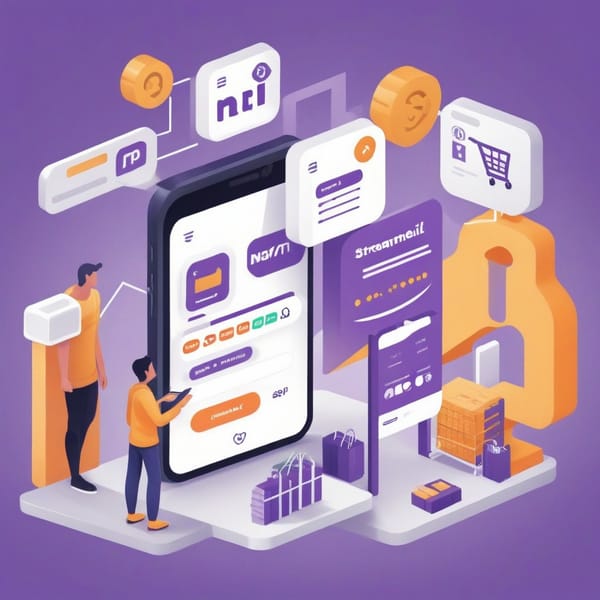Automating Web Data Extraction: How n8n and ScrapeNinja Streamlined Analytics with Custom API Nodes & OAuth 2.0

Project Overview
A data analytics client needed to automate the collection of structured data from multiple websites for competitive analysis, market research, and trend monitoring. Manual scraping was time-consuming, error-prone, and difficult to scale. The goal was to build a robust, low-code workflow using n8n (a workflow automation tool) integrated with ScrapeNinja (a web scraping API) to extract, transform, and store data efficiently. Key requirements included:
- Handling dynamic websites with JavaScript rendering.
- Managing authentication via OAuth 2.0 for secured sources.
- Converting scraped HTML into clean Markdown for consistency.
- Deploying custom API nodes in n8n for seamless integration.
The solution combined n8n’s flexibility with ScrapeNinja’s scraping capabilities to deliver a scalable, maintainable pipeline.
Challenges
- Dynamic Content Extraction: Many target sites relied on JavaScript-heavy frameworks, making traditional scraping tools ineffective.
- Authentication Barriers: Some sources required OAuth 2.0 login, adding complexity to automation.
- Data Formatting: Raw HTML needed conversion to structured Markdown for downstream analytics tools.
- Rate Limiting & IP Blocks: Frequent requests triggered anti-bot measures, requiring proxy rotation and throttling.
- Maintenance Overhead: Hardcoded selectors broke with site redesigns, demanding a resilient scraping approach.
Solution
The team designed an n8n workflow leveraging custom API nodes, OAuth 2.0 authentication, and HTML-to-Markdown conversion to address these challenges:
1. Custom API Nodes for ScrapeNinja Integration
- Built a dedicated n8n node to interact with ScrapeNinja’s API, enabling:
- Dynamic page rendering (headless Chrome).
- Proxy rotation to avoid IP bans.
- Retry logic for failed requests.
2. OAuth 2.0 Authentication Flow
- Configured n8n’s OAuth 2.0 node to handle token generation/refresh for secured sources.
- Stored credentials securely using n8n’s environment variables.
3. HTML-to-Markdown Transformation
- Used Turndown.js (via a custom n8n function node) to clean HTML into readable Markdown.
- Applied post-processing rules (e.g., table formatting, link normalization).
4. Error Handling & Monitoring
- Implemented alerts for failed scrapes via Slack/Email nodes.
- Logged errors to a database for trend analysis.
5. Scalable Deployment
- Hosted n8n on a cloud instance with cron-triggered workflows.
- Stored outputs in PostgreSQL and Google Sheets for analytics teams.
Tech Stack
| Component | Tools Used |
|---------------------|-------------------------------------|
| Workflow Engine | n8n (self-hosted) |
| Scraping API | ScrapeNinja |
| Authentication | OAuth 2.0 (n8n’s built-in node) |
| HTML Processing | Turndown.js (custom function node) |
| Data Storage | PostgreSQL, Google Sheets |
| Hosting | AWS EC2 |
| Monitoring | Slack alerts, Prometheus |
Results
- 90% Time Savings: Reduced manual scraping effort from 20 hours/week to <2 hours.
- Higher Data Accuracy: Eliminated human errors in extraction and formatting.
- Scalability: Processed 50+ domains concurrently with proxy rotation.
- Maintainability: Custom nodes simplified updates (e.g., selector changes).
- Cost-Effective: Avoided expensive SaaS scrapers with a modular OSS approach.
Post-implementation, the client expanded use cases to include:
- Real-time price monitoring for e-commerce.
- News sentiment analysis (Markdown → NLP pipelines).
Key Takeaways
- Low-Code + Pro-Code Hybrids Win: n8n’s flexibility allowed custom nodes for complex tasks while keeping 80% of workflows codeless.
- OAuth 2.0 is Manageable: With proper token handling, even secured data can be automated.
- Markdown as a Universal Format: Simplified downstream processing vs. raw HTML.
- Resilience > Speed: Proxies, retries, and alerting made the system reliable.
- Future-Proofing: Custom nodes abstracted API changes, reducing maintenance.
For teams facing similar challenges, this project demonstrates how n8n + ScrapeNinja can turn brittle scraping into a scalable analytics asset.
Word count: ~800



